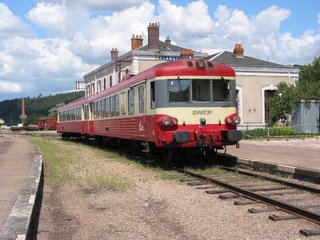 You would think that Dr Eamonn Butler, director of the free-market Adam Smith Institute, would know better. But here he is, in the pages of The Business today, offering a peon of praise to the EU's commission for its attempts to "liberalise" Europe's rail industries.
You would think that Dr Eamonn Butler, director of the free-market Adam Smith Institute, would know better. But here he is, in the pages of The Business today, offering a peon of praise to the EU's commission for its attempts to "liberalise" Europe's rail industries.For sure, the railways on the Continent are classic examples of the heavily-subsidised state-owned dinosaurs, typified by the French-owned SNCF, and Butler makes a good case for breaking up the state monopolies and allowing the wind of competition to rip through the sector.
But, without showing any sign of understanding what is going on, Butler writes cheerily about the commission wanting to be "proactive promoters of market entry and competition, and functionality independent of ministers".
Reference to the commission’s website, however, reveals the true – and predicable – agenda. As we pointed out in respect of the commission’s activities in the energy sector, it is not liberalisation in which the commission is expressing an interest, but integration.
Under the guise of promoting competition and all the free-market values that Butler espouses, the commission is seeking to detach the railways from their national bases, only then to re-order them on a supranational level, under the control of the commission, responsible to its own European Railway Agency.
Integration of the railway system was in fact first attempted way back in 1952, by the then European Coal and Steel Community, with Mr Monnet's High Authority – the forerunner of the present commission – arguing that there was little point in standardising cross-border prices for coal and steel if there were large variations in rail freight charges and conditions.
Then, as always, the ultimate objective was to foster a state of interdependence, breaking down the ability of individual nation states to act independently, making them reliant on the supranational government. Back in the 50s, this was a step too far, but the fact that the process was attempted all those years ago is a salutary reminder of the longevity of the ambitions of the integrationists, and their sheer, dogged persistence.
 Nevertheless, that there should be better co-ordination between national railway systems, cross-border co-operation and liberalisation. Such moves would be in the economic interests of the countries of Europe and could be best managed by a series of intergovernmental agreements, using the established mechanism of the convention.
Nevertheless, that there should be better co-ordination between national railway systems, cross-border co-operation and liberalisation. Such moves would be in the economic interests of the countries of Europe and could be best managed by a series of intergovernmental agreements, using the established mechanism of the convention.That is the direction Butler should be looking. After all, it was said of Mussolini that his great achievement was to make the railways run on time, but no one would suggest reintroducing Fascist dictators for that reason. Similarly, rather than applauding the commission's attempts to make the trains run on time, he should recognise that the price is economic and political integration. That is a price too high.
COMMENT THREAD
No comments:
Post a Comment
Note: only a member of this blog may post a comment.